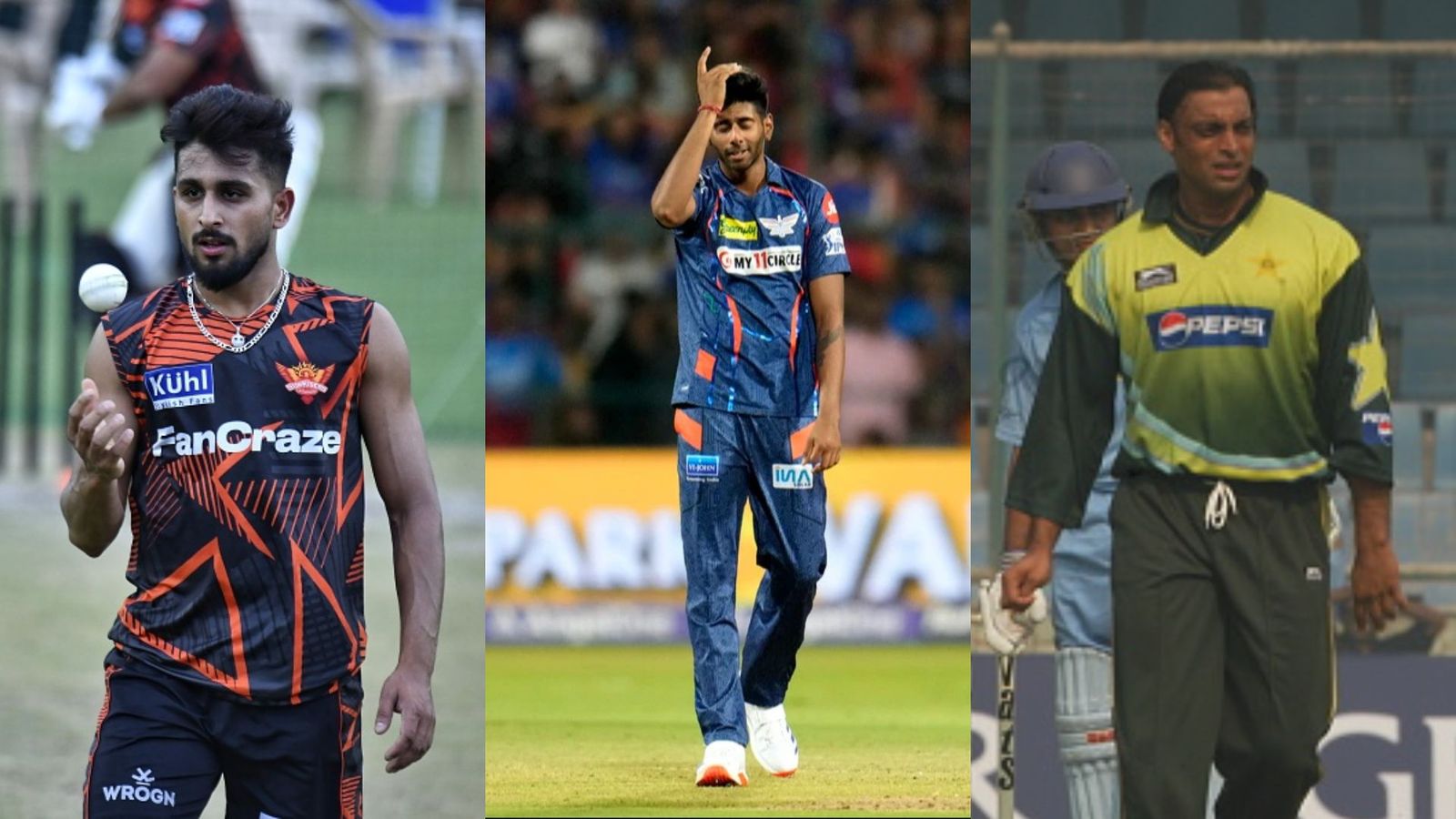Fast bowling is a thrilling spectacle. The bowler's explosive run-up culminates in a perfectly timed leap, before unleashing a missile-like delivery. The batsman, confronted with a split-second decision, must react with lightning speed to both defend their wicket and avoid injury.
Many fast bowlers, such as Sir Wes Hall, Albert Trott, Wayne Daniel, Fred Trueman, and Fred Spoforth, existed before estimating the speed of their deliveries. In contemporary cricket, ball speeds can be readily monitored, allowing us to determine the current and former fastest bowler.
Here is the list of top 10 fastest deliveries ever bowled in cricket:
Shoaib Akhtar
Pakistan legendary speedster Shoaib Akhtar tops the tally with the fastest delivery in the history of cricket he bowled 161.3 km/hr (100.2 mph) against England in 2003.
Shaun Tait
Australia's former fast bowler Shaun Tait also surprised everyone with his speed when he challenged Akhtar to break his record by bowling at 161.2 kmph against England in 2010. However, after this he could not bowl at a speed higher than this.
Brett Lee
Before Shaun Tait, Australia's Brett Lee also tried to beat Akhtar, but he could not do so. Brett Lee bowled at 161.1 kmph against New Zealand in 2005.
Geoffrey Thompson
Before Shoaib Akhtar, Brett Lee and Shaun Tait, Australia's Geoffrey Thompson was the first player to touch the 160 kmph mark when he surprised everyone by bowling at 160.6 kmph against West Indies in 1975.
Mitchell Starc
The fourth Australian fast bowler in the 160 kmph club is left-arm Mitchell Starc, who bowled at 160.4 kmph against New Zealand in 2015.
Andy Roberts
Andy Roberts, one of the four best West Indies fast bowlers during the 1970s and 80s, bowled at 159.5 kmph against Australia in 1975.
Fidel Edwards
Fidel Edwards is the second West Indies fast bowler in the list of top 10 fastest bowlers in cricket history. Edwards bowled at a speed of 157.7 kmph and could not break Roberts' record. He created a sensation with his speed in the match against South Africa in 2003.
ALSO READ: Vinesh Phogat's first reaction after CAS shatters her dream of Paris Olympics Silver Medal
Umran Malik
On the stage of the world famous Indian Premier League, India's young fast bowler Umran Malik won everyone's heart with his speed. Umran bowled the ball at a speed of 157 kmph in the IPL, which is the fastest ball bowled by an Indian fast bowler in the IPL.
Mitchell Johnson
Australia's deadly fast bowler Mitchell Johnson tried to touch the figure of 160 kmph, but in 2013 against England, he could bowl the fastest ball at a speed of 156.8 kmph only.
Mayank Yadav
Mayank Yadav has become the first Indian to bowl a ball at a speed of more than 155 kmph in the history of cricket, as he crossed this figure not just once but twice and bowled the fastest ball of IPL 2024. In which he won everyone's heart by bowling at a speed of 156.7 kmph while playing for Lucknow Super Giants against Royal Challengers Bangalore.
MORE ON SPORTS TAK:


